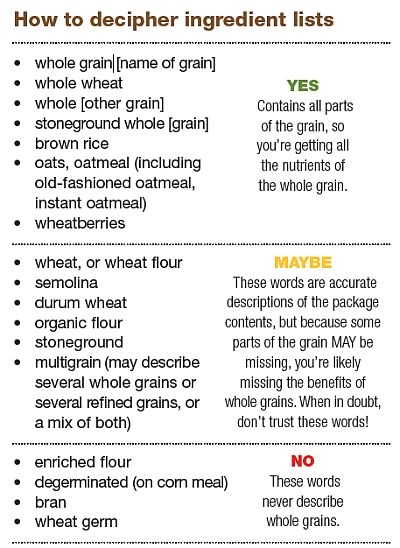
Forgiveness has health benefits. You will feel happier about yourself. It also increases your physical and emotional immune system. It can help lower your chances of getting heart disease and improve your cholesterol levels. You can do it for anyone, which is the best part! How does forgiveness work? These are just four ways forgiveness can be helpful to you. This isn't just for the benefit of others. You can do it for yourself, too!
You feel less stressed and angry when you forgive others. You may feel upset, sad, stressed or angry if you trigger your body's "fight or flee" response. You might need medication to lower your blood pressure or heart rate. This chronic stress can lead eventually to health problems. It is possible to forgive and get over your anger, and regain control.

Forgiveness has many benefits beyond its physical side. Forgiveness is a way to improve your relationships. Studies show forgiveness can reduce cortisol, which is linked both to heart attacks and high bloodpressure. Other benefits include lower cholesterol, lowering stress levels, anxiety reduction and improving self-confidence. It can also make you more compassionate, aware of your surroundings, and happier. Gary Ridgway, the Green River Killer was a famous example of a man who pleaded guilty for killing 48 teenage girls. He killed 48 young women in the midwestern state of Kentucky, and showed no emotion or remorse.
The many benefits of forgiveness have been well documented. Researchers have found that forgiveness has been linked to lower rates in anxiety and depression among older adults. Forgiveness can have a positive impact on your physical and mental health. Forgiving someone else can help you release negative emotions and unforgiveness. In addition, forgiveness strengthens your relationships. You can forgive others and increase your commitment to them. It will ultimately make your life better and make you happier.
In addition, forgiveness can enhance your relationships with other people. Forgiving someone is a way to let go of toxic emotions you felt when they first hurt you. These emotions are gone and you can have a more honest relationship with your friend. Being able to forgive can help you feel better. If you forgive someone, it will be a pleasure to have them around. It will also make you feel happier.

You can release toxic emotions from your life by forgiving others. True forgiveness raises vibrational frequency. It can be difficult to forgive someone who has caused you a lot of pain in your life. Even the most destructive person in the universe can be forgiven. To be able to forgive someone, you don’t have to be perfect. You just need to let the other person know that you're sorry and that you're happy.
FAQ
Cardio Exercise: Good or Bad for Your Health?
Cardiovascular exercise has many advantages. It improves blood circulation, strengthens heart muscle, gives you energy, and can even help you lose weight.
Cardiovascular exercise includes running, biking, hiking, swimming, tennis, basketball, soccer, volleyball, football, etc.
Cardio exercises should not be done at high intensity. This could cause injury.
If you feel fine, only do the cardiovascular exercise.
It is important not to push yourself beyond your limits. This could lead to injury.
When you engage in cardiovascular exercise, it is best to warm up first. Gradually increase the intensity.
Remember, you should always listen to your body. If you feel pain when doing cardiovascular exercise, you should immediately stop.
It is also advisable to rest after a cardiovascular workout. This will allow your muscles to rest.
Cardiovascular exercise is essential for losing weight.
It is the most efficient way to lose weight and stomach fat.
What diet supplement is best to lose weight?
Exercise and diet are key to losing weight. Some people find that certain supplementation can be helpful.
Studies have shown that omega-3 fatty acid may be beneficial in weight loss. Omega-3 fatty acids are essential fats that are vital for brain function, cell membrane integrity, and other functions. They can be found in seafoods like salmon, tuna or shrimp, as well as cod liver oil.
Some research has shown that green tea could be helpful in weight loss. Green tea contains catechins, antioxidants that may help boost metabolic rate and encourage weight loss.
Why is Metabolic Wellness the Key to Aging Well
People are living longer today than ever. As they live longer, they also get sicker. And while we've made great strides in medical science, it's becoming increasingly clear that our current approach isn't working.
We need to change how we think about health and aging. For healthy aging, it is important to look at metabolic well-being - not just weight reduction but overall wellbeing.
You must ensure your metabolism is strong and healthy throughout your life if you want to lead a long, active life.
There are many options to improve your metabolic health. One of those ways is to incorporate these 7 foods into your diet:
-
Resveratrol has been found to be a key ingredient in blueberries, and it has been shown that it can help increase cell longevity. They are also rich in vitamins C & E and antioxidants.
-
Lentils and pinto beans, which are legumes, provide great fiber and plant-based sources of protein. These nutrients help keep blood sugar levels steady so they won't spike and crash.
-
Broccoli's sulforaphane has been shown to protect DNA from damage in research. It could even slow down the growth of cancer.
-
Chia Seeds are high-in omega-3 fatty acids, fiber, and other nutrients. They're also loaded with antioxidants and protein. All these nutrients support heart health, brain function and gut health.
-
Green Tea has polyphenols called catechins. Studies have shown that green tea contains catechins which are linked to lower bone fractures and cardiovascular disease. They also reduce cognitive decline and diabetes risk.
-
Salmonis a great source of lean protein. It is low in saturated fat and high in vitamin D.
-
Walnuts are rich in omega-3s as well as antioxidants such alpha lipoic acids (ALA). ALA boosts energy production and reduces inflammation.
What if I exercise and drink alcohol?
Yes. Alcohol can increase energy expenditure, speed recovery time, and reduce soreness.
The insulin sensitivity of alcohol is also increased, which makes it easier for glucose to be absorbed.
However, alcohol can cause dehydration, which can slow down your metabolism. Also, alcohol can reduce testosterone production, which may lead to lower muscle-building potential.
For these reasons, women shouldn't drink alcoholic beverages before working out. Women who drink heavily should wait at least 24 hours between drinking and working out.
Breastfeeding women should stay away from alcohol.
Men should limit their intake to one drink per day.
Statistics
- By John Thompson Take a whopping 38% off a set of PowerBlock Pros. (menshealth.com)
- Cardmembers earn 5% Back at Amazon.com with a Prime Credit Card. (amazon.com)
- 10 pounds in a month is likely during a lean bulking phase, especially for beginners. (muscleandstrength.com)
- According to the American Academy of Dermatology (AAD), men over 50 are at a heightened risk of developing it. (healthline.com)
- According to the American Heart Association, blood pressure should be checked at least once every two years, beginning at age 20. (my.clevelandclinic.org)
External Links
How To
How do I lose fat by exercising?
Exercise burns calories by increasing metabolism and oxygen consumption.
Exercise at a moderate intensity to safely lose weight.
These tips can help you to burn fat while training:
-
Do cardio exercises such as walking, swimming, jogging, cycling, running, or elliptical training.
-
Exercise for 30 minutes three times per week.
-
Strength training is a great way to lose weight.
-
Avoid intense training. It is possible to build muscle without destroying muscle tissue.
-
During exercise, drink plenty of water. Water helps flush out toxins and keep your body properly hydrated.
-
Choose low-fat protein shakes after working out. Protein shakes boost energy and repair muscle tissue.
-
Eat smaller meals throughout the day, so you don't feel hungry between meals.
-
Don't skip breakfast! Skipping breakfast can make you tired and sluggish.
-
Take care to your mental well-being. Stressful situations can slow down metabolism.
-
Keep a positive attitude. Studies show that people who believe they're overweight gain more weight than those who think they look pleasing.
-
Get enough rest. You will have a harder time losing weight if you do not get enough sleep.
-
Active living is key. Keep moving every hour.
-
Maintain a healthy diet. Healthy eating will keep you fuller and more satisfied for longer.
-
Find relaxation methods. An anxious mind won't allow your body release stress hormones, which can lead to the destruction of muscle tissue.
A balanced diet contains all necessary nutrients for growth and development.
Eat six small meals each day instead of three large ones. This gives your body the time it needs to process what you've eat.
To maintain strong bones, you need to consume 500 mg of calcium each day. Calcium can also be found in milk products, yogurt, fortified Soy beverages, orange Juice, cereals and bread.
Calcium can be found in leafy green veggies, beans, tofu and nuts as well as seeds, nuts and cheese.
Vitamin D is required by the body to absorb calcium. Vitamin D is found in certain fortified foods, such as egg yolk and fatty fish.
Vitamin E is important for skin health. Vitamin E is found in vegetable oils and wheat germ oil, as well as peanuts, almonds and sunflower seeds.
Your body needs zinc to maintain normal immune function and heal wounds. Zinc can be found as a mineral in oysters.
Zinc deficiencies can lead to fatigue, decreased appetite, depression, and reduced immunity.
Too much sugar leads to insulin resistance. This results in higher blood glucose levels. Insulin resistance can lead to weight gain.
Insulin resistance occurs when the bloodstream is full of free radicals. Free radicals refer to molecules that contain unpaired electrons. They can damage cell membranes and other body parts.
The most common sources of free radicals include food additives.
Free radical damage can lead cancer, heart disease or diabetes, arthritis, asthma, or other forms of aging.
To prevent free radical damage, eat a healthy diet rich in antioxidants. Antioxidants protect against oxidative damage.
Antioxidant vitamins include Vitamin C (found in citrus fruits), beta carotene (found in carrots, sweet potatoes, spinach, broccoli, cantaloupe, apricots, squash, mangoes, peaches, peppers, tomatoes, cabbage, cauliflower, kale, Brussels sprouts, collard greens, watermelon, and strawberries), and Vitamin E (found in nuts, olive oil, avocados, and eggs).
Selenium, copper as well as manganese and zinc are some other antioxidant nutrients.
Selenium helps protect cells from oxidative damage caused by free radicals. Selenium can be found in Brazil nuts and liver, kidneys, liver, kidneys, shrimp, cod, turkey and lamb as well as chicken.
Copper protects eyes, brain, lungs and red cells. Copper is found in shellfish, poultry, meat, and organ meats.
Manganese forms an essential part of bone structure. Manganese is found as a component of bone structure in brown rice (spinach, bananas), prunes, raisins and oatmeal.
Zinc is necessary for average growth, reproduction, and wound healing. Zn is found in lean cuts of meat, white fish, poultry, and eggs.